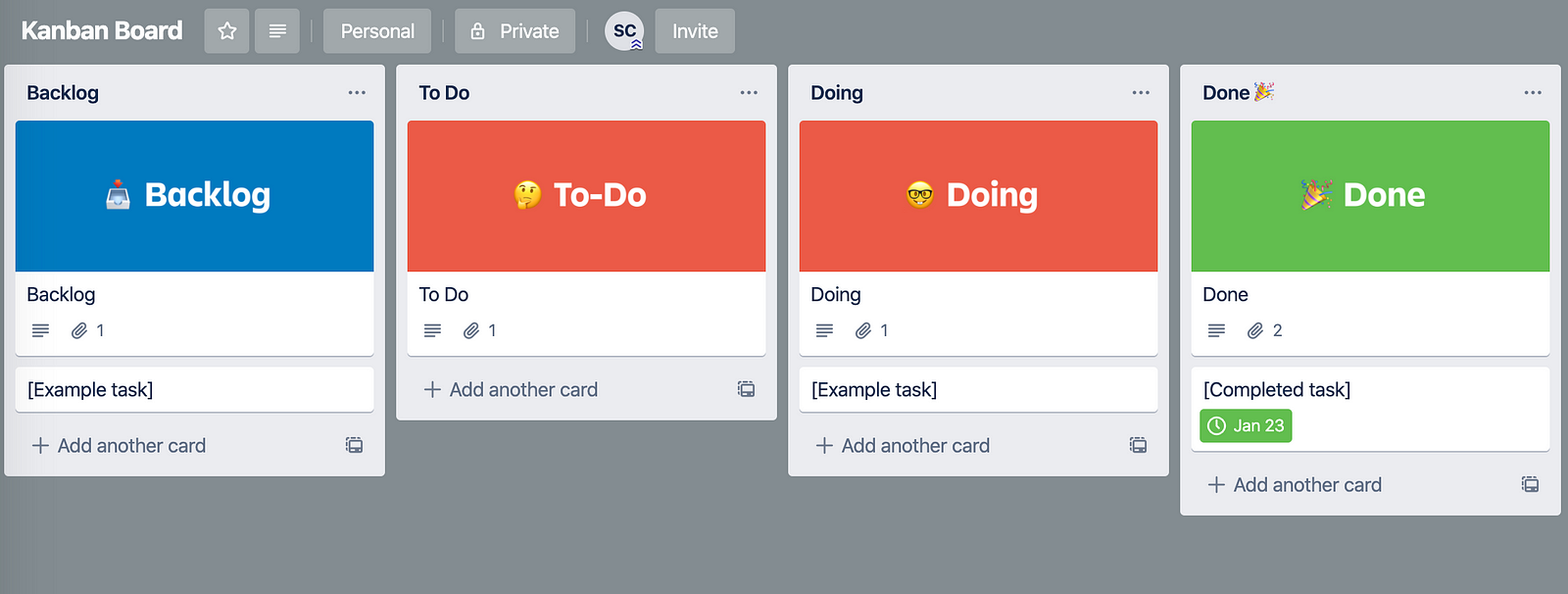How to Achieve Goals while Developing Soft Skills
soft skills
Photo by Juliana Malta on Unsplash
The Vessel building in New York City is a perfect example of how we all start from the same spot on the bottom and climb up to success in different ways. The focused one does it faster by choosing the shortest way to the top, the distracted one does it slower by moving horizontally. The demotivated one does not move. The quitter goes downstairs.
I have been working on my personal growth for more than a year. I tried a lot of already-known principles from books and articles. In the end, I derived my "formula" to become more focused. I would like to share it with you.
Set a goal and learn backward
Your goal should answer What and When questions. For example, "Get a data scientist job in a year", "Prepare and pass the International English Language Testing System (IELTS) test with the score of 7 or higher in six months" or "Write an article about genetics for the next issue of the Science magazine". You could go even further and use a S.M.A.R.T. way to write your goal.
When you set the goal, it is your starting point. Before any action, ask yourself, does it help me to achieve the goal. Following the "done is enough" approach, your final result may be imperfect or knowledge may be shallow, but when you achieved the goal, you can improve the result and widen your knowledge. All in good time.
"First do it, then do it right, then do it better." — Addy Osmani
Skills gained: Goal setting, result orientation
Collaborate and be project-oriented
Professionals have official or community chat groups, webinars, meetups, and conferences. Join and participate. Be open-minded, do not be afraid to ask questions. Nobody knows everything.
Join an existing project or start your own with others. It can be legal help online if you are a lawyer, open-source project if you are a software developer or you can translate professional texts if you know languages.
Document everything, create mind maps, or just make notes. Give talks and presentations, write articles, share your experience with others to help them avoid the mistakes you made. All that gives you confidence, real-world experience, a portfolio of projects, and professional network growth.
Skills gained: Collaboration, Networking, Problem-solving
Step-by-step is the key to success
No matter if it is a small project or a long-term goal, the first step is to break down it into small pieces. It is called decomposition – a crucial skill that helps to solve any problem and serves you throughout your life.
To get a new job, you need to ace an interview, and to do this you need to write a CV, a cover letter, practice interview answers, and so on. Keep decomposing and in the end, you will have a long list of small tasks.
"The best way to eat an elephant in your path is to cut him up into little pieces" – African proverb
It is easier to solve a few small problems than a huge one.
Skills gained: Tasks decomposition
Learn fast and know what is important
Never stop learning and try to do it fast. Consider that everything is a tool to achieve the goal. As a tool, I have been using the Kanban board to handle tasks. You can use a real board with stickers or an app like Trello. I prefer the last one because it is always in your pocket and helps to collaborate with others.

the Kanban board on trello.com
The board should have at least four columns: Backlog, To-do, Doing, Done. Write down all the tasks from your list in the Backlog. When you have done, we need to sort the tasks from the most to least important, because of the 80/20 rule which states that 20% of efforts give you 80% of the result.
I use a simple approach to prioritize tasks. What if I have time to do the only one task today, what would it be? What would get me closer to the goal? Find it and move to the top of the Backlog. Look at the list again and find the second important one. Keep sorting until you sort them all. It works well for long-term goals, but if it is a short-term goal you should include the time factor.
Once you have done it, you are ready to plan.
Skills gained: Fast learning, Prioritizing
Plan daily, work hard and keep motivation high
Pick a few important tasks from the Backlog that you can handle in the space of a day and move them to the To-do column. Congratulations! You have just planned your day.
Your daily working process should be:
- Pick a task from the To-do and move it to the Doing;
- Complete the task and move it to the Done;
- Take a break and repeat.
No more tasks? Just call it a day. Plan your next day, but do not spend too much time on planning, five minutes is enough.
Important! Celebrate every finished task! Add some awards, bring gamification in, be creative. Imagine how rewarding it will be when you achieve the goal. It will keep you motivated.
Skills gained: Creativity, Planning, Time management
Estimate results and stay committed to the goal
The approach from the previous section is a kind of Agile methodology. It gives you the ability to adapt to the fast-changing world. For example, a technology you want to learn is not an industry-standard anymore or the job description changed. Not a problem. Remove stale tasks or add new ones to the Backlog. Review and adjust it weekly.
Do not roll-in an irrelevant online course even if it is with a huge discount or completely free. Time is the most valuable resource you have, spend it wisely. Here is a great quote about time.
"Time can be an ally or an enemy. What it becomes depends entirely upon you, your goals, and your determination to use every available minute." – Zig Ziglar
When you estimate the results, do not look at others. Compare yourself to who you were yesterday. Become better every day and stay focused.
Skills gained: Adaptability, Commitment, Evaluation, Strategic thinking
Be a complete person and encourage others
Be kind and responsive. Get up early, eat healthy food, exercise, and get enough sleep. Encourage people around you and motivate them to set and achieve their goals.
